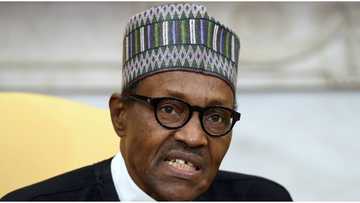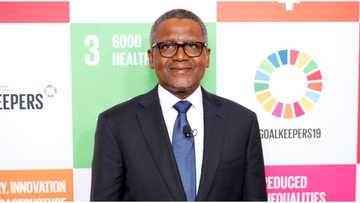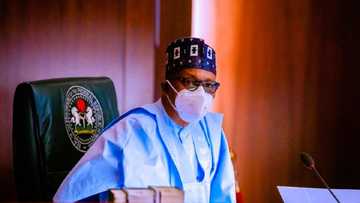Aliko Dangote's Wealth, Nigerian Economy Under Threat as US, G7 and China Clash
- The fortune of Aliko Dangote from the oil business might experience a nosedive eight years from now, as the G7 nation have announced intention to stop fuel consumption
- The group consisting of United States, UK, France, Japan and other European Union members set 2030 as the deadline to transition from fuel into renewable or green energy
- The Nigerian billionaire had planned to sell diesel and fuel to some members of the G7 nation and African countries, but that revenue sources might end up being blocked
The refinery being built by Africa's richest man, Aliko Dangote, which is expected to begin operation in 2022, is projected to experience revenue decline eight years after if the G7 nations meet their green target.
The G7, comprising of the United States, France, United Kingdom, Germany, Italy, Japan, and the European Union, have agreed to end their dependence and support of fuel and diesel by 2030.
Dangote refinery's western market under threat
This means most of these nations, especially EU countries - which are prospective markets for the Dangote Refinery when it commences operation next year - have only eight years to conduct fossil fuel business with the billionaire.
Devakumar Edwin, Dangote Group's Executive Director, Strategy, Capital Projects and Portfolio Development, had stated in November 2019 that:
“It is one of our targets to take diesel to Europe. Our equipment is already being designed to do this. We can take surplus petrol to South America, apart from West African countries and Central African countries. That is why decided to go for Euro V.
“The refinery can handle all the Nigerian crude grades and all the African crude grades, as well as some of the Middle East grades and the US light oil.”
While the refinery is now scheduled for 2022, the timeframe is still shaky, considering the refiner is two years behind its original projections, meaning the business period could be shorter than expected.
Dangote refinery's African revenue source under threat
Aside from the G7 nations, some African countries could also distance themselves from the Dangote refinery, as the western countries intend to phase out petrol and diesel cars, as well as stop its overseas government financial support.

Source: Getty Images
There are plans to replace fossil fuel's billion-dollar aids with green or renewable energy in their foreign policy which will cover African countries.
In a statement by the UK government, it was said that:
“Leaders will set out the action they will take to slash carbon emissions, including measures like ending all unabated coal as soon as possible, ending almost all direct government support for the fossil fuel energy sector overseas and phasing out petrol and diesel cars.”
UK's Prime Minister, Boris Johnson added:
"As democratic nations we have a responsibility to help developing countries reap the benefits of clean growth through a fair and transparent system. The G7 has an unprecedented opportunity to drive a global Green Industrial Revolution, with the potential to transform the way we live.”
Dangote refinery, Nigerian economy, a collateral damage
The agreement is binded under the Green Belt and Road Initiative aimed at tackling China’s belt and road initiative, but the ripple effect will bite into Dangote's refinery business.
However, Dangote and his co-investors will not be the only one at the receiving end, as the Nigerian government, through the Central Bank of Nigeria, had invested N75 billion into the refinery project worth about $9 billion.
Although the focus of the output is Nigeria, the refinery is also aiming for the overcrowded western market.
China has been using its belt and road initiative to increase its influence and expand its reach in Nigeria and other developing nations. In a bid to curb China's presence in these countries, G7 nations will be pumping billions of dollars to back its own initiative.
Supporting the UK's stance, the US government stated that:
"Recognizing that unabated coal power generation is the single biggest source of greenhouse gas emissions globally, and consistent with President Biden’s domestic leadership, G7 Leaders will commit to an end to new direct government support for unabated international thermal coal power generation by the end of this year.”
Meanwhile, Legit.ng had previously reported that cryptocurrency investors are divided over the decision of the Central Bank of Nigeria to initiate its own digital coin.
The financial regulator said before the end of this year, Nigerians will have access to its electronic currency, and bitcoin investors don't agree on the value of the NIGCOIN.
One crypto trader said the decision is a welcome development that will help transform the financial system of the country, but another said being government-controlled poses a problem.
Source: Legit.ng






